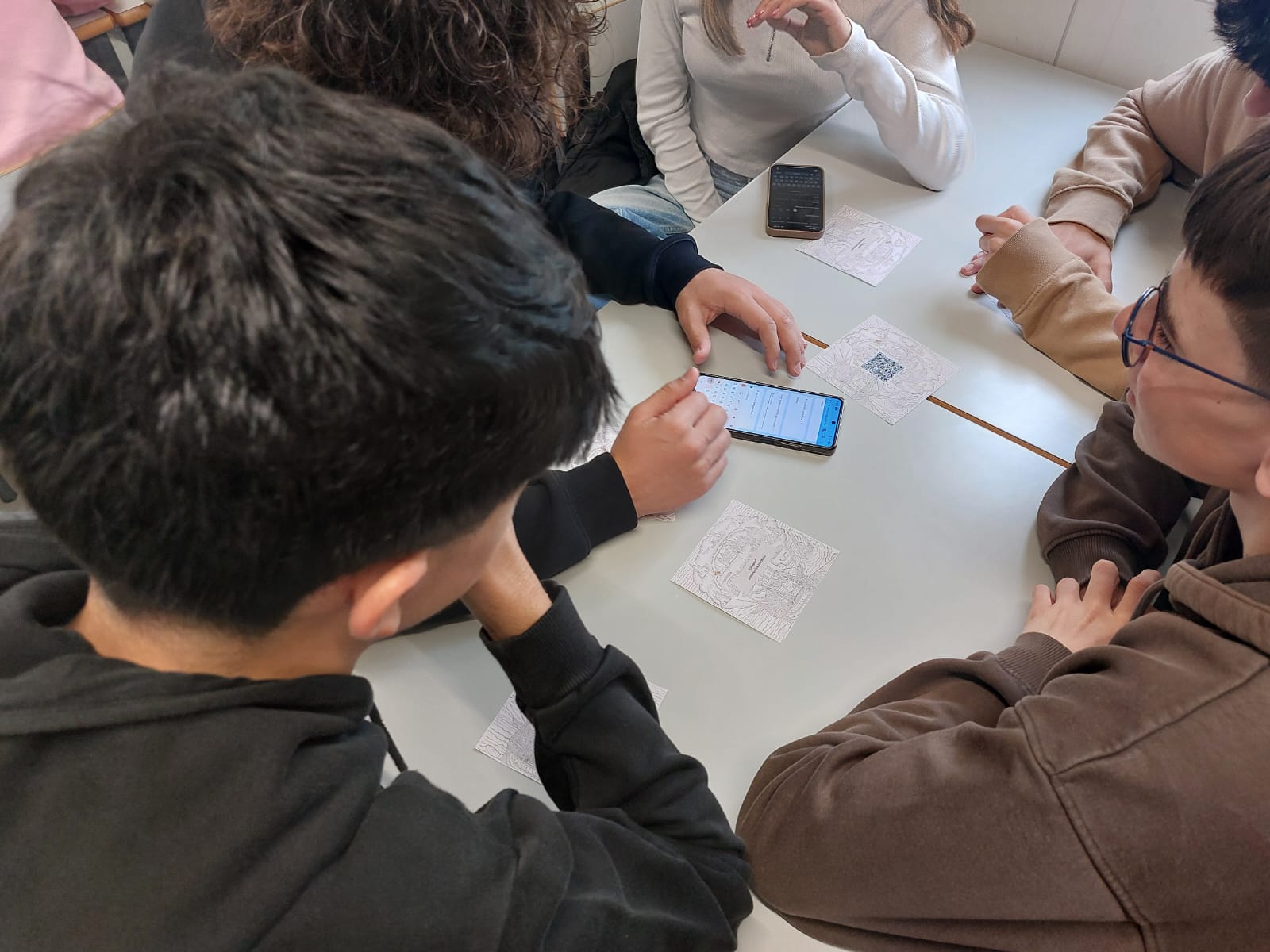On May 13 and 24, the JRAAS team visited Escola Secundária de Valongo (Valongo Secondary School) to carry out the "Create Your Own Utopia" workshop with students ranging from 7th to the 12th graders, within the framework of the Valongo: Utopian City subproject of the Utopia 500 CETAPS project.
Our workshop was an exercise in integrated learning, bringing together the fields utopian studies, digital technology and EFL (English as Foreign Language) in the classroom.
The activity consisted of students creating a utopian society based on their responses to a form our team created, containing prompts like "In my society everyone must..." or "My society is...", creating a set of ideas that would form an abstract society composed of student's ideas of what improvements the real world needs if utopia is to become a reality.
These forms were filled out by several groups into which the whole class was divided at the beginning of the workshop, with the goal of simulating the different interest groups that naturally form in a society where all citizens participate in the democratic process.

After this, each group was assigned one prompt, from which they should select two of the responses the groups gave, based on what they believed the most important aspects they should consider when building their utopia were. After this was done, the whole class analyzed the resulting list of rules, prohibitions and general characteristics of the society they had just collectively created, and to point out not only improvements their imagined society had when compared to the real world, but also the problems that arose from their collection of distinct views of what constitutes the ideal community.
By the end of the activity, the students had reached the (perhaps obvious) conclusion that creating a perfect society is impossible; the fact that society is built by many individuals with differing views of what constitutes an ideal community makes it unrealizable. Yet, the imperfect society they had created presented improvements upon the real world because students built it with their conceptions of an ideal community in mind. In essence, these young minds understood that it's only through utopian thinking that they are able to change and improve their actual communities.
